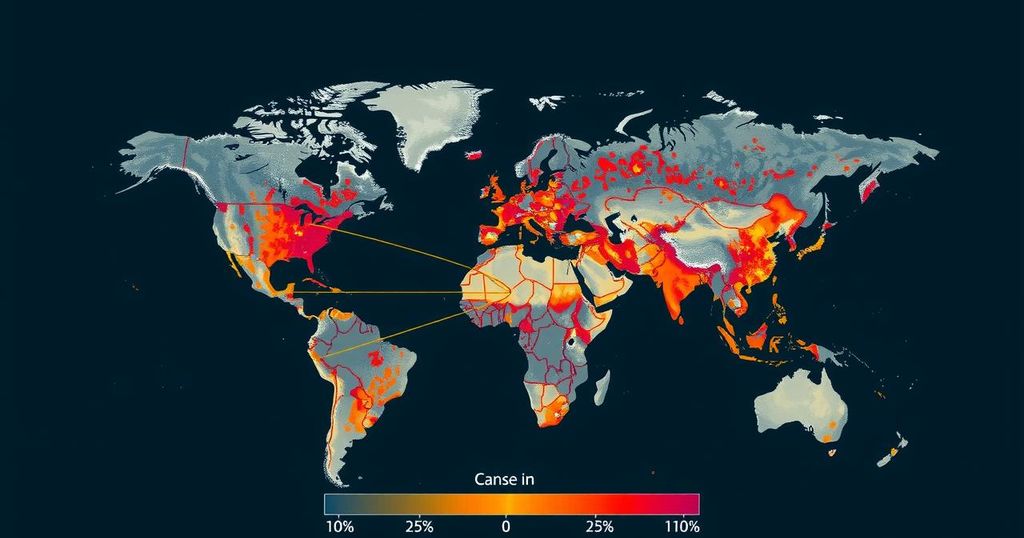Researchers have linked climate change to approximately 20% of global dengue cases this year, highlighting the influence of rising temperatures on mosquito transmission. The study anticipates a 200% increase in cases in several countries over the next 25 years. Additionally, innovative strategies involving Wolbachia-infected mosquitoes show promise in reducing outbreaks, particularly in Brazil.
Recent research indicates that climate change is responsible for approximately 20% of the unprecedented dengue fever cases observed globally this year. As temperatures rise, the spread of the dengue-carrying mosquito vector extends to new regions, exacerbating the already concerning distribution of this virus. This analysis, presented by a team from Stanford University, underscores the pressing need to understand and mitigate the health impacts of climate change, which remains a relatively new area of study. Dengue fever, transmitted by infected mosquitoes, is typically associated with tropical and subtropical climates but is increasingly found in elevated areas of countries such as Peru, Mexico, Bolivia, and Brazil, where temperatures are projected to become ideal for the transmission of the disease. The research finds that in the next 25 years, these regions may see a staggering increase in dengue cases by as much as 200%. The implications of these findings are significant, suggesting that at least 257 million individuals are currently living in areas where rising temperatures could lead to a doubling of dengue transmission. The study sheds light on the broader implications of climate change, stated by researcher Erin Mordecai, who emphasized the urgent necessity of recognizing the health risks posed by a warming planet. Additionally, the World Health Organization reported over 12.7 million dengue cases this year alone, particularly in regions grappling with severe underreporting, which might place the actual number closer to 100 million. These factors illustrate the dangerous potential for outbreaks in an increasingly vulnerable global environment. In conjunction with this study, another research effort has shown promise in combating dengue outbreaks through the introduction of Wolbachia-infected mosquitoes, which possess the ability to impede the transmission of the virus. In Brazil’s Niteroi, the introduction of these mosquitoes resulted in a marked decrease in dengue cases during the nation’s severe outbreak, reinforcing the viability of this intervention strategy.
The nexus between climate change and infectious disease dynamics, particularly dengue fever, is becoming increasingly pronounced. As global temperatures rise, mosquito vectors are able to migrate to previously unsuitable habitats, facilitating the spread of diseases like dengue. With more than 12.7 million reported cases this year and an estimated 100 million actual cases, understanding the implications of climate change on health is critical. This article exemplifies ongoing efforts to ascertain the direct impacts of climate variations on health outcomes while exploring potential mitigation strategies, such as breeding disease-blocking mosquitoes.
In conclusion, the evidence presented indicates that climate change significantly contributes to the surge in dengue cases globally, with projections suggesting a troubling future for numerous regions. This emphasizes the importance of addressing climate-related health risks comprehensively. Furthermore, innovative strategies such as deploying Wolbachia-infected mosquitoes offer hope in combatting the increased transmission of dengue. The intersection of climate change and public health necessitates urgent attention from both researchers and policymakers to avert further health crises.
Original Source: www.voanews.com






